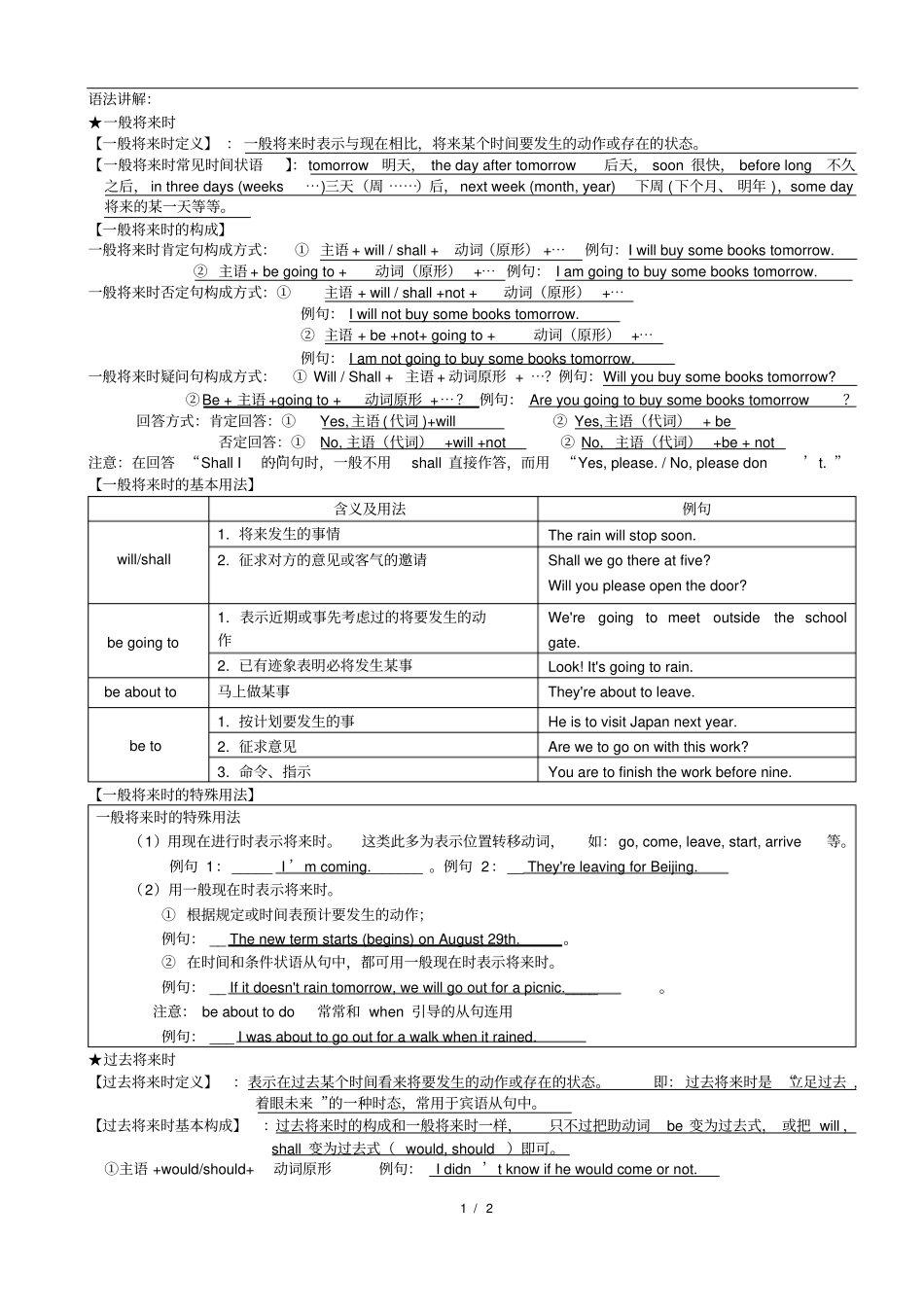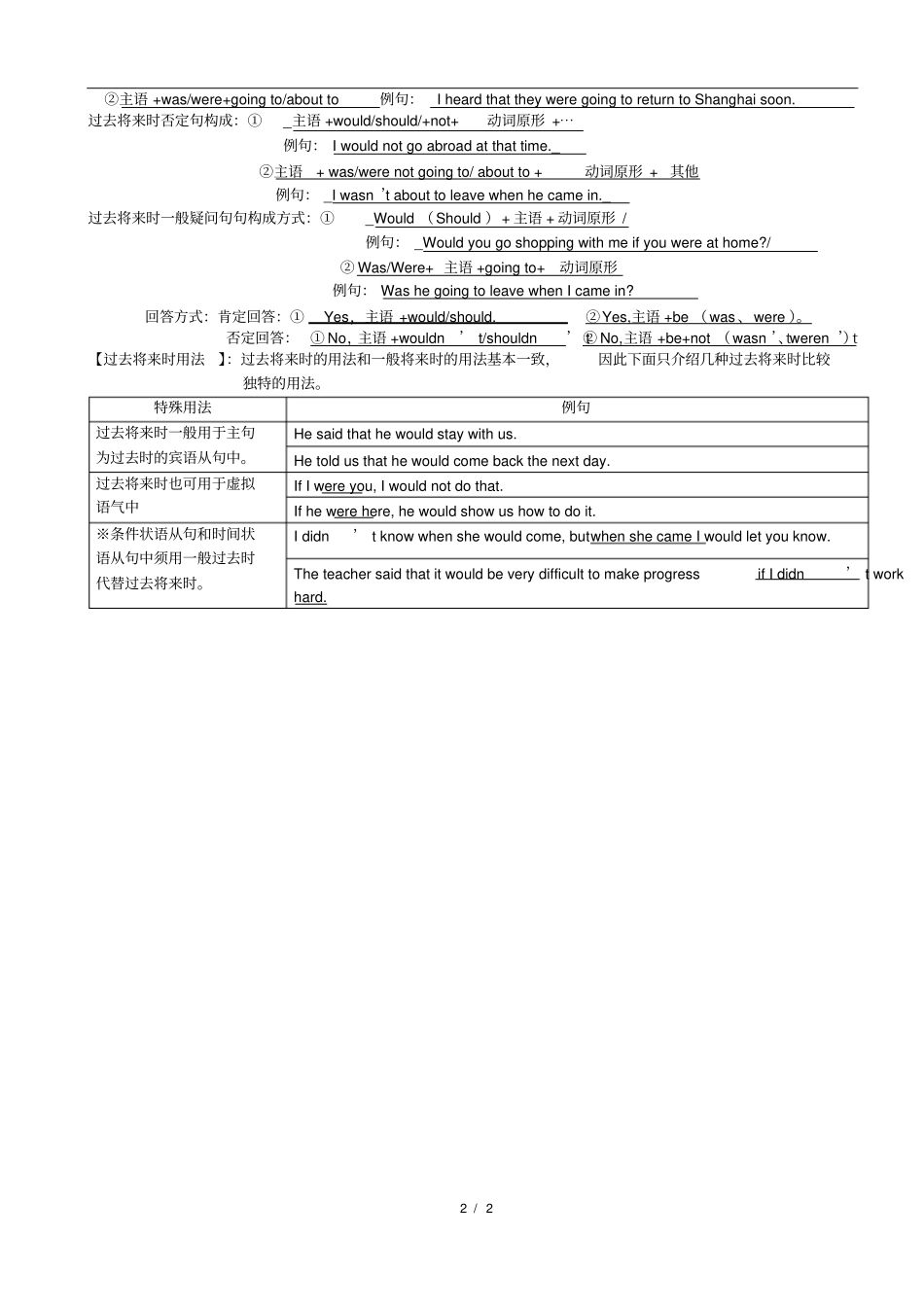1 / 2语法讲解:★一般将来时【一般将来时定义】 : 一般将来时表示与现在相比,将来某个时间要发生的动作或存在的状态。【一般将来时常见时间状语】:tomorrow明天, the day after tomorrow后天, soon 很快, before long不久之后, in three days (weeks⋯) 三天(周 ⋯⋯)后,next week (month, year)下周 (下个月、 明年 ),some day 将来的某一天等等。【一般将来时的构成】一般将来时肯定句构成方式:① 主语 + will / shall +动词(原形) +⋯ 例句:I will buy some books tomorrow. ② 主语 + be going to + 动词(原形) +⋯ 例句: I am going to buy some books tomorrow.一般将来时否定句构成方式:①主语 + will / shall +not +动词(原形) +⋯ 例句: I will not buy some books tomorrow. ② 主语 + be +not+ going to + 动词(原形) +⋯ 例句: I am not going to buy some books tomorrow.一般将来时疑问句构成方式:① Will / Shall + 主语 + 动词原形 + ⋯?例句:Will you buy some books tomorrow?②Be + 主语 +going to + 动词原形 +⋯? 例句: Are you going to buy some books tomorrow?回答方式:肯定回答:① Yes,主语 (代词 )+will ② Yes,主语(代词) + be否定回答:① No, 主语(代词) +will +not ② No, 主语(代词) +be + not注意:在回答 “Shall I ⋯”的问句时,一般不用shall 直接作答,而用“Yes, please. / No, please don’t. ”【一般将来时的基本用法】含义及用法例句will/shall 1. 将来发生的事情The rain will stop soon. 2. 征求对方的意见或客气的邀请Shall we go there at five? Will you please open the door? be going to 1. 表示近期或事先考虑过的将要发生的动作We're going to meet outside the school gate. 2. 已有迹象表明必将发生某事Look! It's going to rain. be about to 马上做某事They're about to leave. be to 1. 按计划要发生的事He is to visit Japan next year. 2. 征求意见Are we to go on with this work? 3. 命令、指示You are to finish the work before nine. 【一般将来时的特殊用法】一般将来时的特殊用法(1)用现在进...

